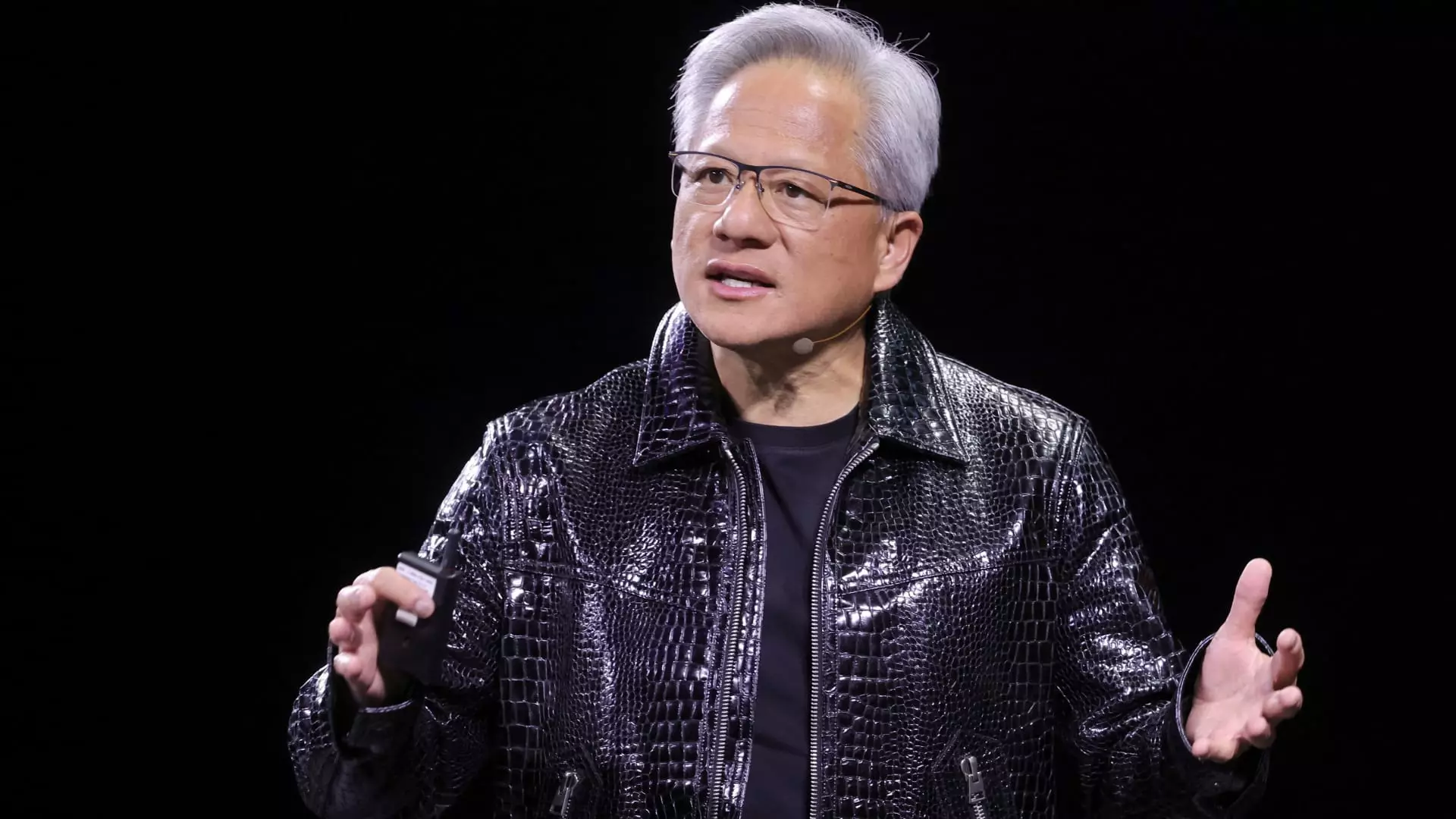In a move that has shocked not only investors but also technologists and enthusiasts alike, Nvidia’s CEO Jensen Huang took the stage at the company’s annual conference determined to clarify his earlier comments regarding quantum computing. Those remarks from January suggested that the technology might take a staggering 15 to 20 years before it could be deemed practically useful. Huang’s recent statements aimed to alleviate fears and boost confidence in a sector that has been vulnerable to market fluctuations. However, his attempt to reframe the conversation appears to have had the opposite effect. Amid Huang’s reassurances, key stocks in the quantum sector plummeted, raising questions about investor sentiment and the future viability of this promising, yet enigmatic field.
The Impact of Words
The emotional and financial landscape surrounding quantum computing is sensitive and precarious. Huang’s earlier timeline inadvertently triggered a sell-off that rippled through the market, highlighting how the errant words of influential figures can incite panic. In a compelling twist, Huang himself sheepishly acknowledged the power of his prior statements: “This is the first event in history where a company CEO invites all of the guests to explain why he was wrong.” One must wonder whether this acknowledgment of miscommunication signifies a deeper misunderstanding of the quantum landscape or merely a public relations effort gone awry. With stocks like D-Wave sinking 18% and IonQ and Rigetti following suit, it seems the narrative surrounding quantum computing is anything but stable.
A Stifling Reality Check
The crux of Huang’s recent address revealed a critical reality: The branding and expectations surrounding quantum computing may be fundamentally flawed. According to Needham analyst Quinn Bolton, Huang’s comments about positioning quantum systems as complementary to classical computing rather than replacements stirred discomfort, especially among industry stakeholders. How can investors maintain confidence in an industry where its leaders themselves grapple with defining its purpose? The suggestion that quantum technology should be marketed as a specialized tool leads to a broader discussion about the unrealistic expectations that have been set. If leading voices in the field are unsure about its place, how can investors be expected to invest their capital?
Nvidia’s Role in the Quantum Landscape
Despite the current turmoil, Nvidia continues to showcase its commitment to furthering quantum research. The announcement of a new research center in Boston, aimed at fostering collaboration between quantum firms and esteemed universities, reflects an optimistic long-term vision. However, one must question whether this intent can withstand the volatile nature of public perception. Nvidia has undeniably carved out a niche for itself with its powerful GPUs, which serve as essential training tools for quantum simulations. But will this technological synergy translate into tangible advancements in quantum computing that the industry can rally around, or will Nvidia find itself grappling with its own overinflated expectations?
The Investor Dilemma
Investors seem to be caught in a paradox. While Huang asserts that quantum computing holds transformational promise, the very companies venturing into this domain have consistently underperformed in the stock market. With the Quantum Defiance ETF down more than 4% this year alone, it’s reasonable to speculate that the cautious optimism surrounding quantum computing is drowning in a sea of skepticism. Each expert opinion presents the potential of quantum as a revolutionary force, yet the data continues to speak volumes regarding the immediate applicability—or lack thereof—of this technology.
Looking Forward
As Huang attempts to pivot the public discourse around quantum computing, it remains to be seen how effective his efforts will be in reshaping investor sentiment. The need for realistic expectations around the technology, a coherent branding strategy, and an understanding of its limitations has never been more pressing. The balance between optimism and prudent skepticism may ultimately define the trajectory of quantum computing in the coming years. As much as Huang champions the potential for groundbreaking advancements, the hard truth remains: without transparent communication and realistic timelines, the allure of quantum computing may end up being little more than a mirage in the desert of technological aspiration.

